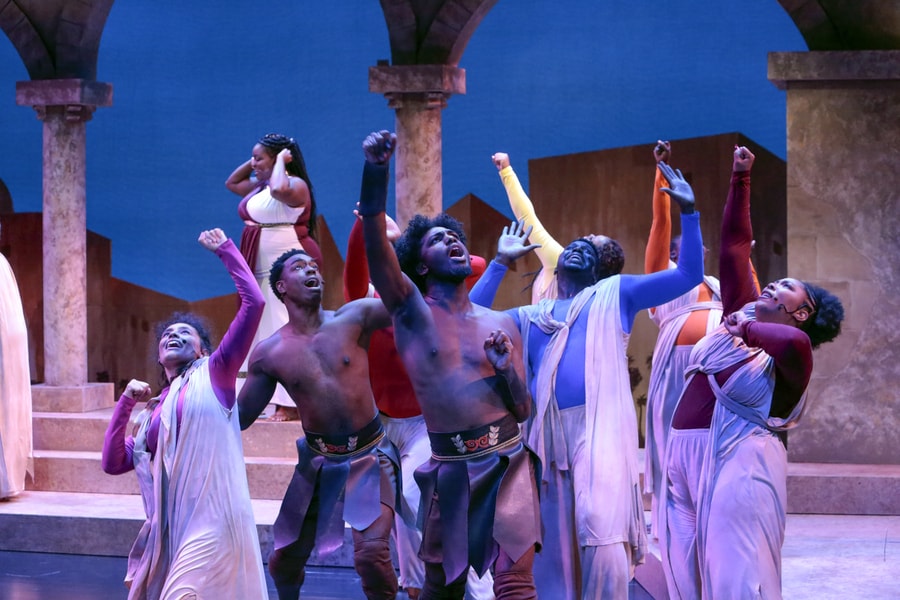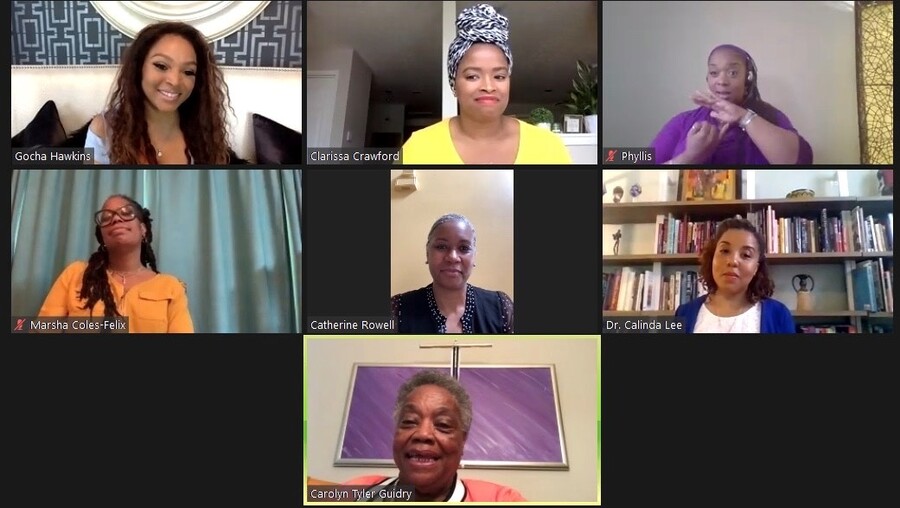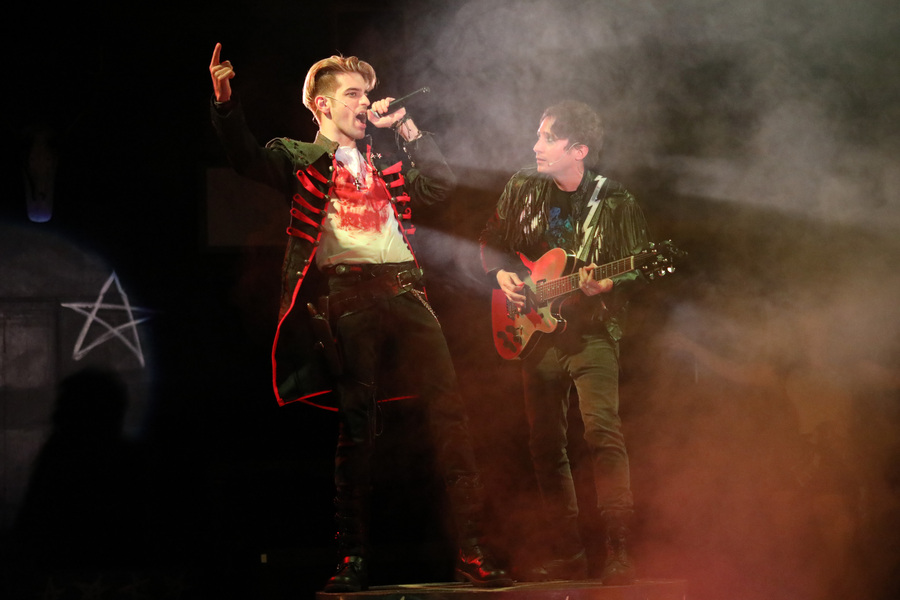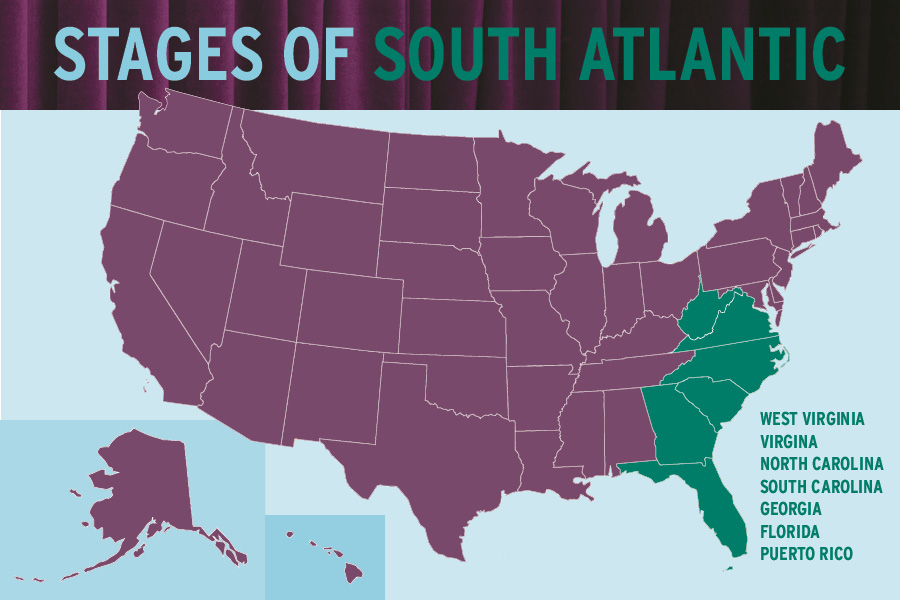Since the COVID-19 shutdown began, theatres across the South Atlantic region have continued to engage with their communities. Far beyond simply aiming to remain financially stable and finding ways to keep producing somehow, these theatres have moved culture and representation to the forefront, providing a platform for a wide array of races and ethnicities.

At the time of the COVID-19 shutdown, Westcoast Black Theatre Troupe of Sarasota, Fla., had just reopened its newly renovated theatre in January with Tony Kushner and Jeanine Tesori’s Caroline, or Change. The musical Your Arms Too Short to Box with God was midway through its run, and the world premiere of Nate Jacobs and Michael Jacobs’s Ruby was in rehearsal.
After Florida went into lockdown, the theatre’s focus shifted to local youth and to planning initiatives related to race relations and justice in the United States.
“We are kind of revisiting some of our focus in order to make sure we’re making a statement as the performing arts institution that we are,” said Nate Jacobs, who is also the theatre’s founder and artistic director.
Westcoast still plans to hold this summer’s Stage of Discovery Summer Musical Theatre Intensive Program, created to help young men and women in the region develop self-confidence and artistic skills. Youth is the theatre’s most important constituency, said Jacobs, who has discovered many talented artists from the area’s under-served communities via this program. “They can stand shoulder to shoulder to anybody in the country,” he said of its graduates.
The troupe has come a long way from its earliest days as a nomadic theatre at the turn of the 21st century. Still, the questions it is asking are largely the same, according to Jacobs: “What story are we telling? What experience are we giving to our audience? What consciousness are we putting before us all that we’re still looking at this America and still working on this America?”
Westcoast continues to post content and offer online streaming, including a video about the importance of Juneteenth, featuring a clip from Jacobs’s 2018 musical Marvin Gaye: Prince of Soul. The video makes the case that Gaye’s “What’s Going On” is an anthem for the struggle that continues more than 150 years after the original Juneteenth.
“I think we have a responsibility, talking about the Black Lives Matter movement, to develop allies in the movement, with our audiences,” said executive director Julie Leach. “We have to keep pushing for equality and true justice.”
Westcoast has announced that its 2020-21 season, including the rescheduled Ruby, will begin in October. Though the theatre’s leaders are not certain they’ll be able to stick to that timeline, they are excited—and ready—to tell stories onstage again as soon as possible.

True Colors Theatre of Atlanta was reaching an exciting climax to its 17th season, the first under its new artistic director, Jamil Jude. The season’s overarching theme, She Griots, aimed to uplift Black women, including a “52 Weeks of Women” online feature spotlighting female artists of color weekly, as well as through productions by Dominique Morisseau and Jocelyn Bioh. But the season’s final offering, George Brant’s Marie and Rosetta, was postponed, and the company’s Spring Play Reading Series, an event to give voice to artists and playwrights, was canceled altogether.
“It wasn’t as hard of a transition as it would have been had we not been in the habit of talking about our brand,” said managing director Chandra Stephens-Albright.
The theatre has used its weekly True Colors podcast to stay connected to the community while addressing the continuous shifts in the world.
“We were able to talk about George Floyd and Ahmaud Arbery,” Jude said. “We’ve been able to talk about how COVID-19 is disproportionately affecting Black communities. I think it’s also been inspiring for other artists and community members to take a look at what we’re doing at True Colors, to help us navigate what’s coming up next.”
At the same time, the management and marketing team are looking at policies and procedures to pinpoint areas for improvement, including in such areas as volunteering, group sales, and programming.
Stephens-Albright and Jude said they have adopted a policy of “under-promising and over-delivering,” because their staff were hurt by unmet promises, even ones that were outside their control. Hence, their weekly Monday staff meetings have become a place to heal, listen, and uphold their mission: to celebrate the rich tradition of Black storytellers. They aim to widen their audience so these stories can be heard.
“If the essentiality of our work is truly that,” Stephens-Albright said, “then how can we work with folks that really believe in making the change and bringing our work to folks that need to hear them?”
Jude looks forward to returning to the theatre, and to seeing the excitement of the audience and cast. “We often talk about how we’re the only thing standing in the way between you and a good show,” he said, referring to his pre-show curtain speeches. “I look forward to standing in that gap again.”

On March 15, Trustus Theatre of Columbia, S.C., had just opened its production of the musical Bloody Bloody Andrew Jackson while rehearsing for Jackie Sibblies Drury’s Fairview and Nia Vardalos’s Tiny Beautiful Things. All three productions were cancelled, resulting in an incomplete 35th anniversary season.
“We lost 60 percent of our programming, which naturally equals about 60 percent of our projected revenue,” said Trustus artistic director Chad Henderson.
Even with facilities in South Carolina reopening, such as bowling alleys, restaurants, fitness centers, and beaches, Henderson said he does not expect to reopen the theatre before September. “You can go to a beach, but you can’t go to a theatre,” he said.
In the meantime, Trustus is analyzing all of its procedures, including sanitation and ticketing, while securing new sources of funding. When the theatre does reopen, it plans to do so at 50 percent capacity.
The theatre has also broadcast archival works on Trustus LIVE, their livestream platform, including their 2014 production of Terrance Henderson’s The Black Man…Complex and Jon Tuttle’s The Palace of the Moorish Kings. Henderson said that health considerations will also lead to fewer large-cast shows in the immediate future.
He had particularly looked forward to Fairview, a story examining families, drama, and the insidiousness of white supremacy―an especially appropriate subject in respect to the Black Lives Matter movement. He is confident that stories like these can give voice to the voiceless.
“Our theatre is your theatre,” he said.
The set of How to Succeed in Business Without Really Trying lies empty at Maltz Jupiter Theatre in Jupiter, Fla. Before the shutdown, it had just finished its last dress rehearsal, with $550,000 invested into production and $670,000 worth of tickets sold.
All the hard work would not be in vain, though. The theatre decided to film the production and sent the recording to those who purchased tickets as a gift to enjoy at home. The theatre showed it can overcome even after pausing production and no longer being able to gather.
“I think communicating with our cast was critical, and I made them all aware of the situations that were going to happen,” said artistic director Andrew Kato. “I made them part of the conversation.”
Maltz Jupiter’s main focus is on the full renovation of its theatre space, a project that has been going on for six years. Its Believe capital campaign continues to accept donations toward a $22 million goal. Additionally, the theatre also does livestreams and is preparing for an as yet unannounced off-site production in an alternative venue it hopes will receive national attention.
When Maltz Jupiter is allowed to reopen, it plans to continue its legacy of reinventing and reimagining classic musicals and plays. “You may have had a steak before, but you haven’t had that steak with our spices,” as Kato put it.
The theatre collaborated with the Palm Beach Opera, Ballet Palm Beach, and the Palm Beach Symphony to create a video of Barry Manilow’s “One Voice” as a reminder that culture can be a great healer. “We’re going to show you that we come together when things are dark and send a message to have one voice,” Kato said. “We are one voice as a culture.”
He said he also believes theatre is the great recorder of history. He expects new plays about the time in quarantine and the Black Lives Matter protests. Kato believes theatre will overcome and evolve when it finally returns to the stage.
“I think it can be provocative and challenging, as well as joyful and celebratory, when the opportunity comes for us to come together again,” he said. “We persevered and made sure that we are going to be here on the other side.”
Madeline Powell is a Goldring Arts Journalism graduate student at Syracuse University.
Creative credits for production photos: Your Arms Too Short to Box With God, book by Vinnnette Carroll, music and lyrics by Alex Bradford and Micki Grant, adapted and directed by Harry Bryce, with music direction by Jay Dodge II, set design by Michael Newton-Brown, costume design by Adrienne Pitts, lighting design by Nick Jones; Bloody Bloody Andrew Jackson, by Alex Timbers and Michael Friedman, directed by Chad Henderson, with music direction by Chris Cockrell, choreography by Grayson Anthony; How to Succeed in Business Without Really Trying, book by Abe Burrows, Jack Weinstock, and Willie Gilbert, music and lyrics by Frank Loesser, directed by Andy Sandberg, choreographed by Rommy Sandhu, with scenic design by Adam Koch, lighting design by Kirk Bookman, costume design by Leon Dobkowski, music direction by Eric Alsford, hair and wig design by Gerard Kelly, sound design by Marty Mets




